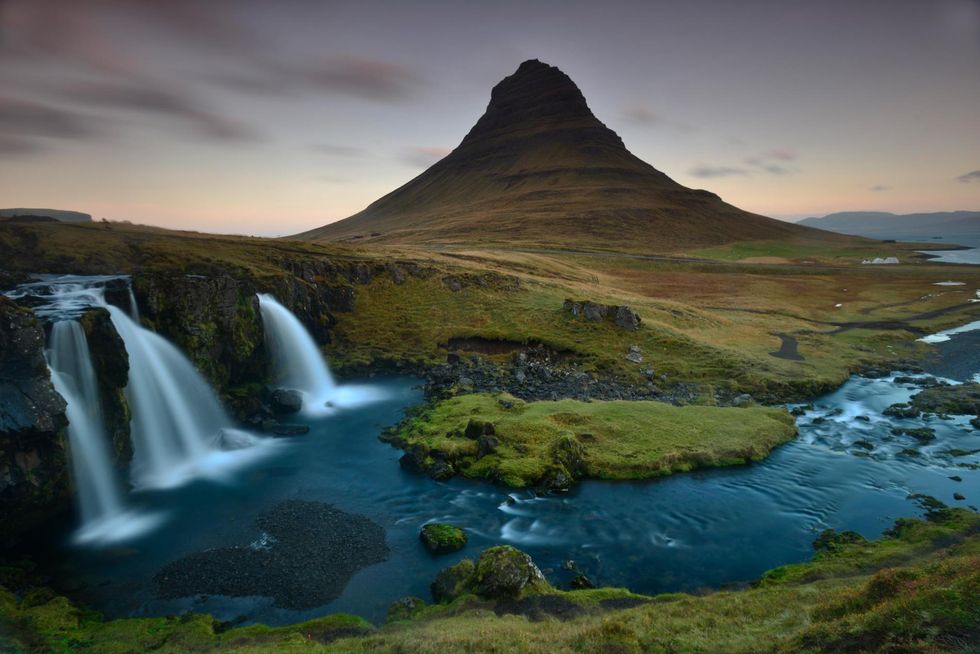In the spring of 2016, as a sophomore at Lesley University, I packed my bags and headed off for the adventure of a lifetime. After more than a year of anticipation, I was finally going to study abroad for a semester in Iceland. I got to live in Reykjavik and attend the University of Iceland, and really get a feel for what it was actually like to live there full time. While many people lately have chosen Iceland as their vacation spot due to the increase in tourism there, I had actually been to the country a handful of times before studying abroad there. My mom was born in the country, and lived there with her parents and sister until she was a teenager when they moved to the United States. I had always been curious to learn more about what she experienced living there, and this was the perfect chance to do so.
Although I did an extraordinary amount of research before I went, there were many things I learned while living there that did not pop up when I searched the typical tourist questions. As with anywhere in the world, living there can be very different than just visiting for a few days or a week. Throughout my time living in Iceland I learned a great number of new and interesting things about the country and its history, some of which I have compile here as a list of reasons why you should consider studying abroad in Iceland.
1. The Language
The Icelandic language is actually number nine on the list of the top most difficult languages to learn in the world. Spoken by less than 400,000 people worldwide, the language has remained relatively unchanged from when it was initially created. It is relatively similar to Old Norse, and rather than modernize it by borrowing terms from other languages, Iceland has often chosen to create new words for terms that did not exist in the original language. Due to the fact that so few people in the world speak Icelandic, the best way to learn is by being immersed in the culture. However, it is also extremely easy to get around with just English, as an estimated 98% of Icelanders speak English as well.
2. The Landscape
Anyone who has been to Iceland will surely say that it has a landscape like no other place. Known as the land of fire and ice, Iceland is known for having both volcanoes as well as glaciers, which is certainly a unique combination. It is also home to a great number of natural attractions. From waterfalls to mountain ranges, and lava fields to glacier lagoons, one of the best things about natural attractions is that the majority of them are completely free to visit! This is surely a bonus for college students in particular, who are often on a tight budget, and you will be guaranteed to never get bored.
3. The Geological History
Iceland is still a relatively new country. Geologically, it is thought that the island first began to form around 24 million years ago. This may sound like a long time, but to give you an idea, the landmass we know today as North America began to form roughly 200 million years ago, long before Iceland, Another unique thing about the location of Iceland is that it sits between two of the earths tectonic plates. The interaction of the Eurasian and North American plates is what led to the formation of Iceland. If you visit Iceland, you can actually participate in the incredible experience of scuba diving between the two tectonic plates in the national park known as Þingvellir. Though I will warn you, since the water here is pure glacier water, it can definitely get very cold.
4. The Culture
Over recent years, tourism in Iceland has grown exponentially. In 2017 an estimated 2.3 million tourists visited the country. Given that Iceland only has a population of about 324,000 people, that is an extremely high number. Yet it wasn't all that long ago that most people didn't know much of anything about the island. Now it seems as if everyone at least knows someone who has traveled there, if they have not themselves. Aside from the tourism rates, true Icelandic culture is filled with all sorts of fascinating stories and tales of trolls and elves that many believe exist in the countryside. There is certainly no better way to truly learn what a culture is like than to completely immerse yourself into it, and live like the native Icelanders do.






























